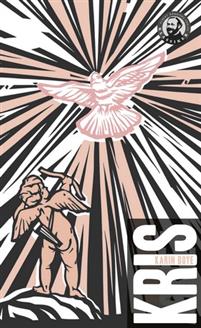It would be hypocritical of me to encourage my students to read novels in English, and then not do the same in Swedish. I actually think it’s a good exercise for EFL teachers, as well: choose a foreign language you can reasonably read and understand and make ongoing attempts to read in that language. It’s important to remember how frustrating a foreign language can be, at times, and help you empathize with your students and be a better teacher.
This is going to be a shorter review than usual, for what I hope are obvious reasons (i.e. novels in Swedish won’t really help anyone learn English). But I like to keep as complete a public record of my reading as possible, so I still want to make note of it here.

Author: Karin Boye
My GoodReads rating: 4 stars
Average GoodReads rating: 3.66 stars
Language scaling: N/A
Plot summary: Malin Forst is a seminary student in the period after the first World War. Romantic feelings for female classmate, Siv, paired with with the free-floating uncertainty in post-World War I Europe lead Malin to a crisis of faith and subsequent nervous breakdown, after which she has to reevaluate her life and reassess her own moral code.
Recommended audience: Fans of queer literature; fans of modernist literature.
In-depth thoughts: I was already familiar with Boye’s other novel, Kallocain, which I actually read in English when I was an exchange student at Stockholms universitet in 2007. I’m not sure if Kris is available in English, but Kallocain definitely is and I would recommend that for EFL students who enjoy science fiction. But Kris is much different; it’s much more modernist and experimental than the relatively straightforward and plot-driven Kallocain. Boye explores Malin Forst’s breakdown through inner monologues and dialogues, conversations among notable historical figures and personified abstract concepts, as well as straightforward narration. The novel is episodic, which is great when you’re reading in a foreign language and have trouble maintaining focus for long stretches. (I love Par Lagerkvist, but I also think he could use chapter breaks and now and then.)
Boye is primarily known as a poet, and that shows in the way she uses language and imagery throughout Kris. It only took me so long to finish Kris because I was reading three or four book simultaneously, on top of being busy. It’s a great option if you need something to read for SFI, SAS, or AKSVA.

One thought on “Book Review: Kris”